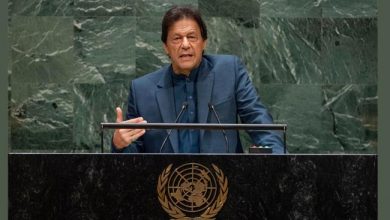Article 370 judgement: another step in the wrong direction

It is high time for all parties involved to enter into a constructive, meaningful and result-oriented dialogue in order to find a solution that is acceptable to all parties for the benefit of the people in the region
By Altaf Hussain Wani
A five-judge bench of the Indian Supreme Court, headed by Chief Justice D. Y. Chandrachud, has finally delivered the much-awaited judgement after hearing a series of petitions challenging the government’s power to abrogate Article 370 of the Indian Constitution. It has taken almost four long years for the Supreme Court to fix a date for the hearing in this high-profile case and only 16 days to conclude the debate on the matter. The court was expected to largely address the key concerns and controversies surrounding the J&K Reorganisation Act, which led to the revocation of special status and division of Jammu and Kashmir – a region whose dispute is still pending at the United Nations.
It was indeed a great opportunity for the Supreme Court to think out of the box, enhance its stature as the court of last resort and hear the case on merits, thus addressing the legitimate concerns of the petitioners. Instead of delving into the intricate details of the case, which involved serious violations of constitutional and legal obligations, the ruthless suppression of the people’s political and human rights, fraud and deceit, and the distortion and misinterpretation of historical facts, the five-member court reached a verdict that not only upheld the authoritarian regime’s key decisions but also exonerated it of all the responsibilities, wrongdoings and injustices it had committed against the people of the state on 5 August 2019.
The judgement looks like a carbon copy of the J&K Reorganisation Act. For many years, the BJP has been presenting the abolition of Article 370 as a panacea for all problems related to the Kashmir issue. The ruling party has every reason to celebrate the judgement as it fits well into the grand scheme it has for Kashmir in the future.
However, notwithstanding the overwhelming euphoria in New Delhi, the Supreme Court judgement is yet another betrayal and a breach of the promises made to the people of Kashmir in 1947 and thereafter from the Delhi Accord of 1950 to the 1975 Accord between Indira Gandhi and Sheikh Abdullah, and even to the recent times when the agenda of governance was mapped out in 2014 with the PDP forming a coalition government in Jammu and Kashmir.
Article 370 was included as a special clause in the Indian Constitution, guaranteeing autonomous status and other privileges to the people of the state of J&K.
While the process of erosion of Kashmiri identity began in the 1950s, Article 370 remained a fig leaf for the so-called mainstream parties vouching for the state’s accession to India. For them, this judgement was a big disappointment.
-Authoritarian measures are counterproductive
For the Hurriyat and the groups ideologically close to it, the judgement carries no weight as they keep emphasising that the reinstatement of the article is not their problem. Their politics revolves around the resolution of the Kashmir issue and they believe that no act of the Indian Parliament or court judgement has any bearing on it.
The judgement may not affect their politics, but it has posed many challenges to the major political parties who had pinned high hopes on the Supreme Court. How will they cope with this new challenge? Will they accept it as a fait accompli or try to achieve something else under the framework of the law? This may turn out to be the case shortly, but it would be a Herculean task for them to convince their voters and supporters in the future.
History has proven that the government’s policy of forcing its decisions on people has always proved to be counterproductive. While all other avenues to vent dissent have been exhausted, many have pinned their hopes on the judiciary. But with the judiciary fully supporting the government’s decision, it looks as if this last strength has also been lost.
Such an authoritarian approach, which goes against the established principles of norms and justice, may help the present Indian government strengthen its control over the area, but it will in no way help it to bridge the widening gap between Srinagar and New Delhi.
A wise and judicious verdict by the Indian judiciary could have helped provide respite to the bewildered masses in Kashmir and restore confidence in the state institutions, but the honourable judges seem to have preferred to satisfy the collective conscience of the supporters of the present government.
As far as the judgement is concerned, the court most frequently referred to the Instrument of Accession and relied mainly on it in making the counter-argument that Parliament has every right to legislate in matters relating to Kashmir. But in fact, the Instrument of Accession signed by the Maharaja in extraordinary circumstances gave the Indian Parliament the power to legislate for J&K only in three areas: Defence, Foreign Affairs and Communications.
Secondly, legal experts are of the view that Article 370 is a constitutional recognition of the terms and conditions mentioned in the IoA and reflects the treaty rights and obligations of the two parties – the Indian Union and Jammu and Kashmir.
More importantly, a detailed letter from the Maharaja to Lord Mountbatten in which he wrote about the circumstances that compelled him to sign the accession document – Mountbatten responded by saying, “It is the wish of my Government that as soon as law and order is restored in Kashmir and the soil cleared of the ‘invaders’, the question of the accession of the State should be settled by a consultation of the people.”
-Against the spirits and promises
The experienced legal and constitutional expert A. G. Noorani referred to the said letter and stated that the accession is not permanent and irrevocable.
Looking at the other aspects of the Supreme Court’s decision, the judgement goes against the spirit of all promises made to Kashmir and its leaders.
At the international level, Pakistan and China have refused to recognise the validity of the ruling, stating that it does not change the nature of the conflict or the realities on the ground. China, which has emerged as another actor in the recent past, stated that the court judgement does not change the fact that the western part of the Sino-Indian border has always belonged to China.
The judgement has undoubtedly added another layer of complexity to an already complicated issue, but it cannot help either party to the dispute to run away from the reality, which is that the people of Jammu and Kashmir are the final arbiters of their destiny, which must be decided independently and without coercion and interference.
It is high time that all stakeholders engage in a constructive, meaningful and result-oriented dialogue to find a solution acceptable to all parties. The sooner they do so, the better for the people of the entire region.
Had this issue been resolved, South Asia would have moved forward and benefited a lot from mutual cooperation. It is time for Prime Minister Narendra Modi’s government to rethink and revise its policies, accept the reality, move forward with a positive mindset and address the root causes of the unrest in the region.
The author is chairman of the Islamabad-based think tank Kashmir Institute of International Relations; he can be contacted by email; Saleeemwani@hotmail.com





